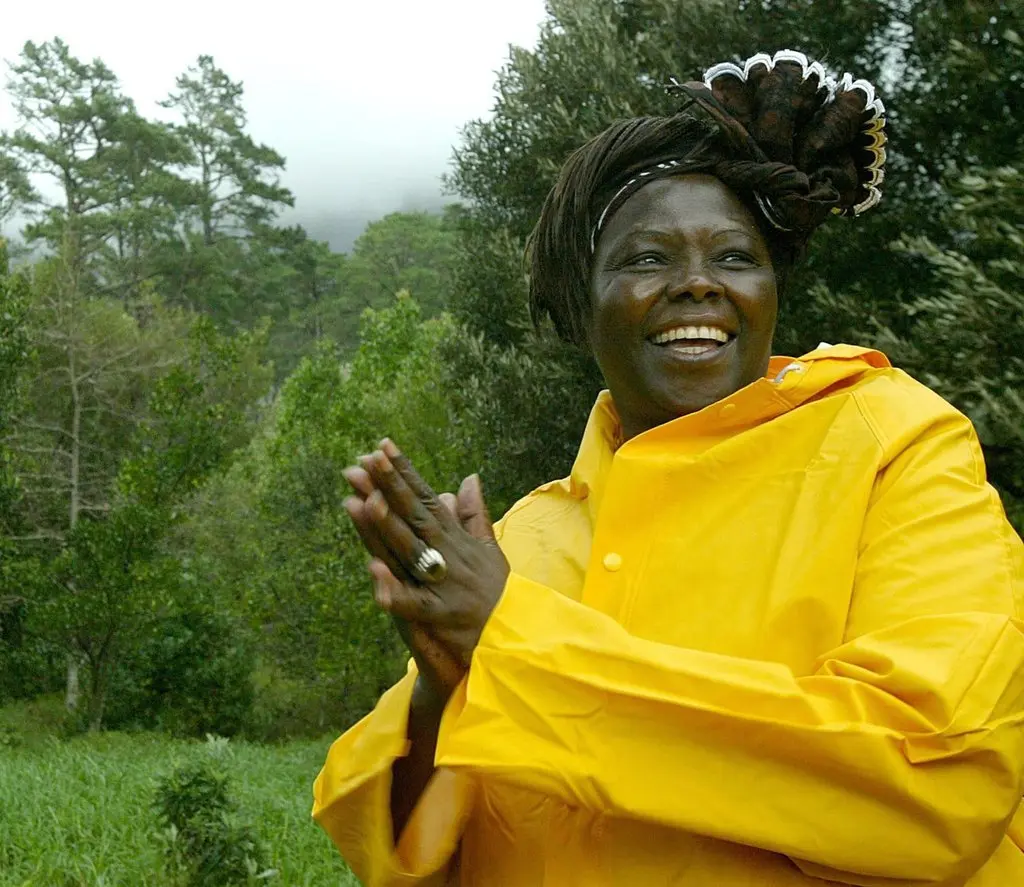Professor Wangari Maathai was a trailblazing Kenyan environmentalist, human rights advocate, and political leader whose life’s work revolutionized global conversations around sustainability, democracy, and women’s empowerment. She was the first African woman to win the Nobel Peace Prize in 2004, recognized for her contribution to sustainable development, democracy, and peace.
Born on April 1, 1940, in Nyeri, Kenya, Wangari Muta Maathai was the first woman in East and Central Africa to earn a Doctorate, receiving her Ph.D. in veterinary anatomy from the University of Nairobi. Her early academic journey included studies in the United States as part of the Kennedy Airlift, and she later returned to Kenya where she became both a pioneering scholar and a fearless activist.
In 1977, she founded the Green Belt Movement (GBM)—a grassroots environmental organization focused on tree planting, conservation, and women’s rights. The initiative began as a response to deforestation, soil erosion, and water scarcity in rural Kenya, but it quickly evolved into a pan-African environmental and social justice movement. Under her leadership, the Green Belt Movement planted over 50 million trees across Kenya and empowered thousands of rural women through civic education, sustainable livelihoods, and environmental stewardship.
Wangari Maathai’s advocacy transcended environmentalism. She was a fierce defender of democracy, human rights, and good governance—often at great personal risk. She endured harassment, imprisonment, and political intimidation for speaking out against corruption and environmental degradation during the era of President Daniel arap Moi. Her courage made her a symbol of resistance and resilience for oppressed peoples worldwide.
In 2002, she transitioned from activism to politics and was elected to the Kenyan Parliament, later serving as Assistant Minister for Environment and Natural Resources. Even in public office, she maintained her commitment to ethical leadership and environmental justice.
Wangari Maathai authored several influential works, including Unbowed: A Memoir, The Challenge for Africa, and Replenishing the Earth, which reflect her visionary thinking and deep spiritual connection to the Earth. Her philosophy embraced “bottom-up” development, where communities are active agents in protecting their ecosystems and determining their futures.
Her Nobel Peace Prize marked a turning point in the global recognition of environmental stewardship as a foundation for peace and security. She was a member of various international boards, a UN Messenger of Peace, and the recipient of over 15 honorary doctorates and numerous global awards.
Professor Wangari Maathai passed away on September 25, 2011, but her legacy endures through the countless lives she touched, the forests she helped restore, and the movements she inspired. Today, she is remembered not only as a pioneer of African environmentalism, but as a global icon for climate justice, nonviolence, and the power of women to change the world.




